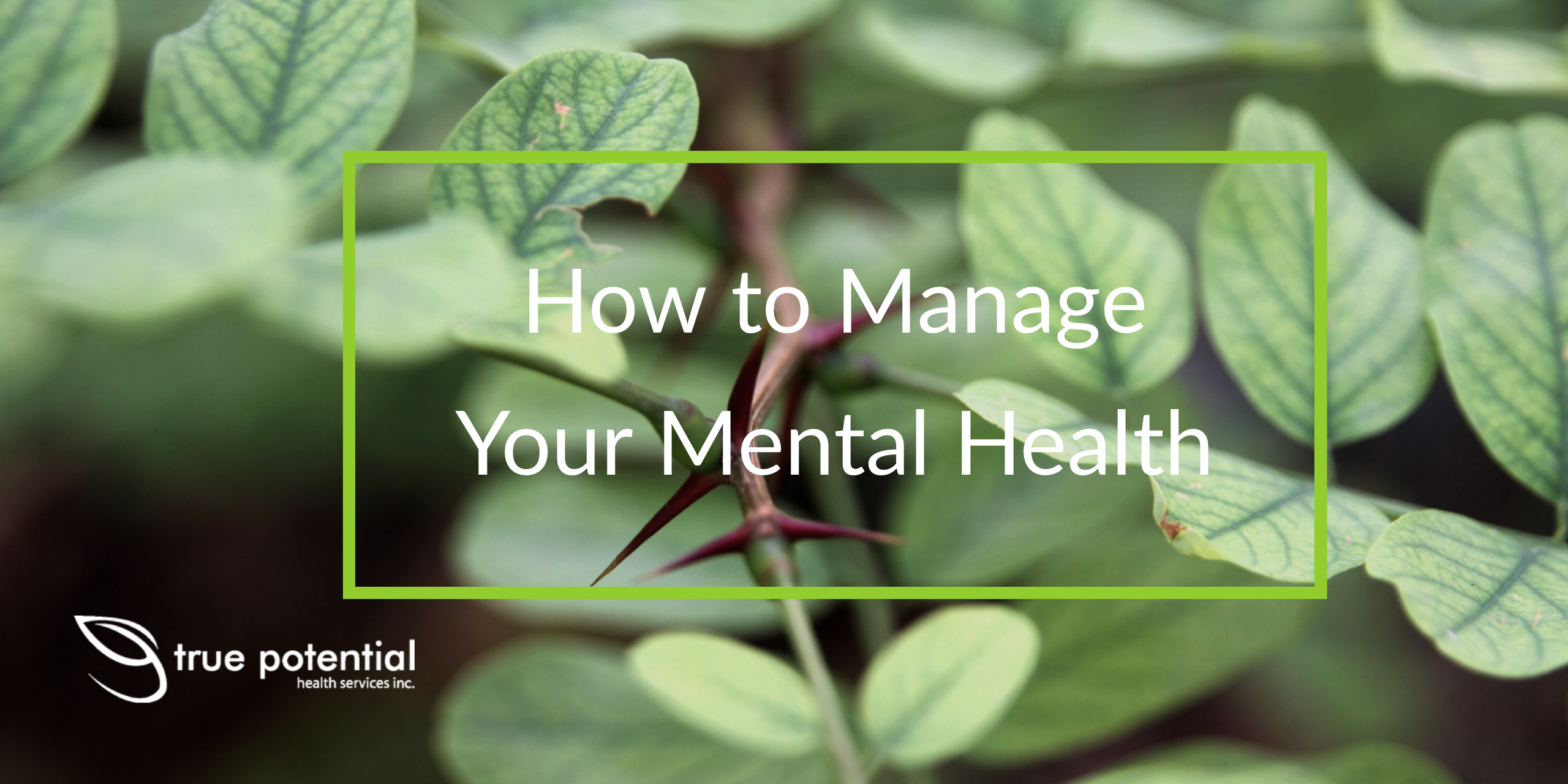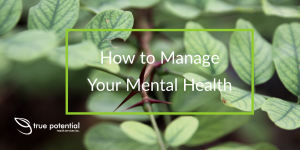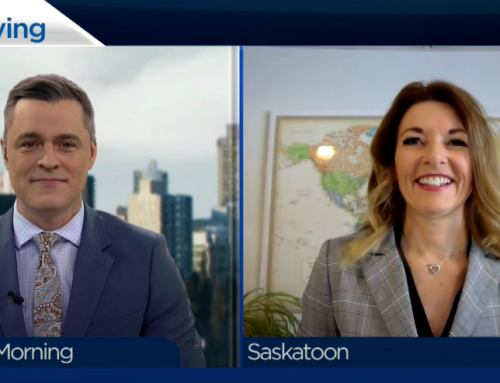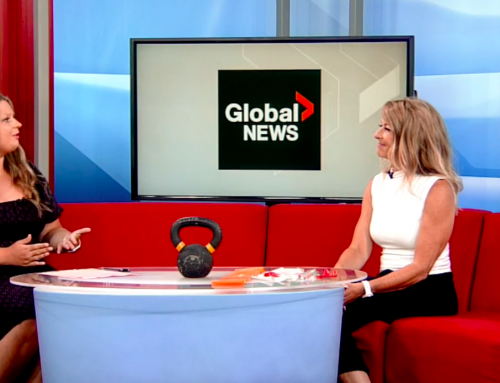Written By Dr. Michelle Marcoux, ND
Mental Health Week: Managing Your Mental Health
In honor of Mental Health Week, I wanted to share some of the tools and resources I have found to be the most helpful for myself over the past year. Now that we are more than a year into the COVID pandemic, I think these tools are more important than ever. Whether the pandemic has created additional stress for you or taken away your ability to use your usual coping tools, these suggestions are meant to support your mental health and ability to take care of yourself. Often, we can’t do anything about the stressful things that happen to us, but we always have the ability to change how we respond to those stressors.
Addressing Stress and Trauma to Manage Mental Health
Stress is meant to be a short-lived event that our body has a response to and then completes so we can return to a relaxed state known as “rest and digest.” You will know you are in this state when you feel present, relaxed, and at ease in your body. Many of us rarely exist in this state because we have either not been taught or have forgotten how to complete our stress cycle and allow our bodies to relax. If we have a history of trauma, our bodies may not feel safe when relaxed.
One thing I have noticed since the pandemic is that I tend to keep myself busy in order to avoid feeling things I don’t want to feel. Now that my options for keeping myself busy are so limited, I realize I can no longer avoid feeling my feelings and that this is not a particularly supportive strategy for my mental health anyway. Learning to slow down and be present has been difficult for me. I am definitely someone who is rarely in ‘rest and digest’ mode because it doesn’t feel safe. And the reason it doesn’t feel safe is that when I am relaxed and present, feelings I don’t want to feel start to come up. Then I get uncomfortable or anxious and immediately find a way to distract myself from that feeling.
Seeking Support from a Professional to Manage Mental Health
Having realized this about myself, I have slowly begun to build strategies and techniques to help myself look at and deal with the feelings I have been avoiding. Probably the most important strategy has been seeking counselling support from a professional. For me, this has been essential for overcoming my resistance to looking at the things I am hiding from. But beyond that there are been lots of other tools that have been helpful and I will list them below so you can explore them as well.
Be Gentle with Yourself to Manage Your Mental Health
As a final note, I’d like to suggest that you be very gentle with yourself in this process. I have found that most of the stress I feel is the result of having high expectations for myself, failing to meet these expectations, and then being really hard on myself for that “failure.” If you can relate to this, I would suggest to use these tools slowly, one at a time, with little to no expectations. Just experiment, try a few things out, and see how you feel. If they aren’t a good fit, that’s ok, just try a different one when you feel ready. Lasting change tends to come from the slow and steady accumulation of small steps taken over time, not from big and sudden changes that motivate us at first and but then feel too overwhelming to sustain in the long term.
Coping Tools to Manage Your Mental Health
My favorite coping tools:
Books (information + practical tools to use):
- Burnout: The Secret to Unlocking the Stress Cycle – Emily and Amelia Nagoski.
- How to Do the Work – Nicole LePera
- The Way of Integrity – Martha Beck
- What’s in the Way is the Way – Mary O’Malley
- NOTE: if you are not one for reading, these are all available as audio books, but all of these authors also routinely go on podcasts to talk about their work, so feel free to start off by searching for them on your podcasting app and then just listening to a few episodes.
Breathing:
- Wim Hof Method: https://youtu.be/tybOi4hjZFQ
- This method feels a bit unnatural at first, but it is really effective at shifting you into ‘rest and digest’ mode.
- If you want to explore more Wim Hof techniques (like cold showers or mindset work): www.wimhofmethod.com OR download his free app.
- Insight Timer App – lots of free, guided breathing techniques to experiment with if Wim Hof is not your thing.
Meditations (short and simple):
- The Adult Chair – https://theadultchair.com/meditations/
- Insight Timer App – lots of free guided meditations, look for short ones, 5 min or less to start.
- Yoga Nidra – YouTube and the insight timer app both have lots of options.
- Yoga Nidra is essentially guided, progressive, body relaxation.
- I sometimes find this easier to focus on than a traditional guided meditation where I just sit and try to still my mind.
Other:
- Going for a walk outside
- This is often when I listen to podcasts or books.
- Sometimes instead of listening to something I will try to focus all my attention on my surroundings and just really notice what is around me. This helps get me out of my head and into my body.
- Listening to/watching ASMR videos – some people find these weird but I find them very relaxing.
- This is my favorite ASMR person: https://www.youtube.com/user/GentleWhispering/featured
- If you are wondering what the heck ASMR is: https://en.wikipedia.org/wiki/ASMR
- Making a list of all the things I need to do for the next day so I’m not still thinking about them at bedtime. Then checking them off when I do them the next day.
- I always include easy things like “make kids lunches” or “go to work” because it makes me feel good to check them off at the end of the day.
- Anything I don’t get done gets circled and added to the next day’s list.
- NOTE: if this makes you feel worse because you don’t get most of the things done in a day that you would like to, consider making a list for the whole month, and then choosing just ONE of the things off that list to add to your daily list. Your daily list, if you feel overwhelmed and defeated by how much you have to do, should mostly consist of things you know you will get done – brush your teeth, have a shower, feed yourself, etc. This will do 2 things: first it will help you realize how much you are actually doing in a day so you can give yourself a break and recalibrate your expectations; and second, it gives you a little boost at the end of the to be able to check most of the things off your list so you don’t feel so defeated.
Written By Dr. Michelle Marcoux, ND







